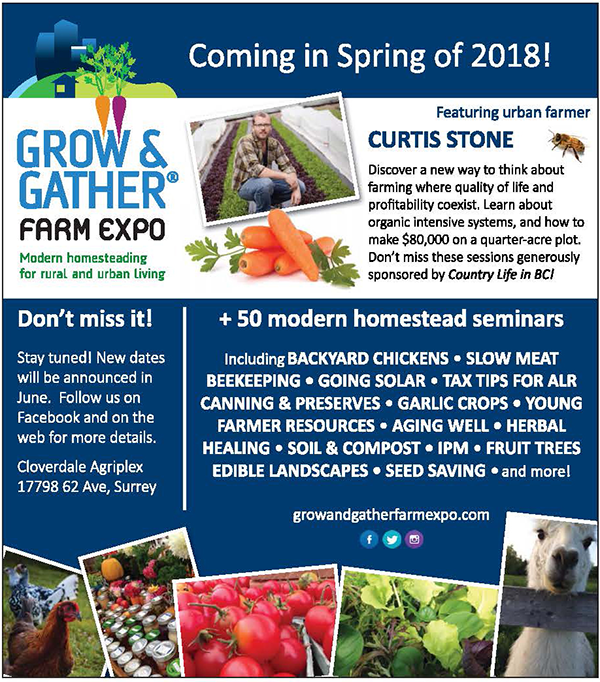RICHMOND – Richmond council’s decision to permit farmhouses up to 10,764 square feet without having to seek a variance didn’t come without a fight.
During two long nights of public hearings in May, presenter after presenter spoke out against council’s bid to allow homes in the Agricultural Land Reserve (ALR) double the 5,382 square feet city staff recommended.
“The principle you should be going on is to protect as much farmland as possible,” said Sandra Bourque, a retired member of the Richmond School Board. “It should not be to house as many people as possible.”
The idea that certain “cultural practices” make large farmhouses acceptable was a “red herring,” she said, referring to arguments Indo-Canadian farm owners have made in favour of residences that can accommodate several generations of a single family.
“There are many cultural practices that are not accepted, with very good reason,” Bourque said.
The staff recommendation reflected BC Ministry of Agriculture guidelines for residential development on farmland as well as surveys of existing farmhouse sizes and feedback received during an open house in early March. However, Richmond Farmers Institute supported the larger cap of 10,764 square feet. (A call to RFI president Todd May for comment was not returned.)
But many speakers echoed Bourque’s argument that farmland is for food production and that smaller houses are better. Several speakers told council it should have acted earlier.
“Council’s inaction has created a divide and instability in our community,” said Laura Gillanders, who felt council should respect the BC Ministry of Agriculture’s guidelines for residential development on farmland. “The Ministry of Agriculture expects you to be doing your job as a local government.”
Such allegations prompted council to ask staff how houses, some approaching 30,000 square feet, have been built without council review before now. Staff responded that house sizes have been unregulated, meaning permits can’t be withheld on the basis of size alone. The fact prompted farmers and farmland owners to tell council they should have as much right as anyone else in the city to build the kind of house they want.
“Farmers should have the right,” said Bruce May, one of the city’s larger cranberry growers.
Gary Brar, a blueberry grower who has been a vocal participant in the debate over the proposed bylaw, said that he currently lives with his parents in a 4,100-square-foot house but expansion is planned when he marries and the family grows.
“We need large houses,” he said, noting, “We didn’t have these problems before a few bad eggs built unreasonably large homes.” (Speaking at the open house in March, Brar considered houses of up to 15,000 square feet adequate.)
The public wasn’t having anything to do with it.
Speculation is speculation, they argued, no matter who does it or by what means. Sure, farmers have a right to make a living from the land, but not through real estate development.
“We do not owe it to the farmer to cash out for development,” Gillanders said.
David Baines, a former business journalist with the Vancouver Sun, questioned the motivations of the Richmond Farmers Institute and why council had ignored staff’s recommendation.
“My suggestion is what you’re framing as a compromise is a political cop-out,” he said.
Perhaps the most reasonable comments of the night, which Baines encouraged staff to heed, came from Helmut Pastrick a local resident better known for his work as chief economist of the Central 1 Credit Union.
Pastrick told council that by not imposing a tight limit on the size of farmhouses, they were sacrificing the potential for long-term employment opportunities.
Pointing to the recently released figures from the 2016 federal census of agriculture, Pastrick said Richmond farms had become more productive despite diminishing in number from 211 to 189 between 2011 and 2016. They now generate $58 million in farm cash receipts versus $49 million in 2011, an 18% increase. He expects that figure could easily double to $120 million if land was farmed rather than developed.
“There’s a considerable amount of land that’s under-utilized that could be used for farming,” he said. “Under-utilized farmland is not contributing to our economy.”
However, when the final vote was taken on May 17, council voted 7-1 in favour of large homes. Councillor Carol Day cast the sole opposing vote; councillor Harold Steves, venerated for his involvement in establishing the ALR, quietly left the meeting before the vote.
The vote opens the door to tighter enforcement of how owners use housing within the ALR.
The city banned short-term rentals in January but exempted farm accommodation pending tighter regulation of farmland housing.
In the meantime, 45 applications for residential construction – all in excess of the new limit – will be processed under the rules in place prior to council declaring a moratorium on new applications in late March.
The debate isn’t quite settled, however. While restrictions are in place, staff will report on the effectiveness of the new limits in six months.


 Small farm expo postponed
Small farm expo postponed